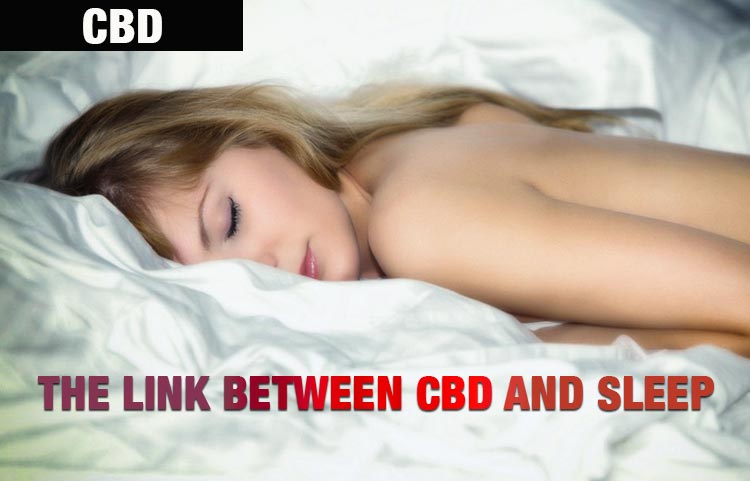Table of Contents
Last Updated on October 15, 2019 by Team Spinfuel
CBD and Sleep – If you’re struggling to sleep well, you’re not alone. About one third of U.S. adults report that they typically sleep less than what’s recommended, according to the CDC. That means not sleeping at least seven hours each day. And not getting enough sleep is linked to issues including type 2 diabetes, obesity, depression and heart disease. You can even be at a greater risk of accidents.
But cannabidiol, often known as CBD Oil, can be helpful for sleep and could help you get the recommended amount of sleep each night so you can lower your risk of accidents and chronic diseases.

What Research Say
Research suggests CBD can be helpful for falling asleep and staying asleep. A new study from Kaiser Permanente indicates that cannabidiol may be helpful for disorders related to anxiety. In the study, adults with concerns of anxiety or poor sleep were overall able to improve sleep scores within the first month of CBD use.
How CBD Works to Help You Sleep
CBD isn’t necessarily a sleep supplement, though it can be helpful for sleep. People who suffer from difficulty sleeping may find that CBD helps the sleep well because it can alleviate conditions that might make sleeping well more difficult. For example, CBD can improve stress and anxiety. It’s also commonly used to treat pain.
With a relaxing effect, calming your central nervous system to alleviate stress, anxiety, even pain from chronic conditions, CBD could clear the way to a healthy night of sleep. But there is some suggestion that CBD is a good choice for sleep even if you don’t suffer from pain, anxiety, or stress that keep you awake at night. It’s believed to work with receptors in the body that are part of your body’s sleep and wake cycle.
Should You Use CBD if You Struggle to Sleep?
If you’re comfortable using CBD and have a hard time sleeping, it’s worth a shot. The Kaiser Permanente research indicates no evidence of safety issues that would limit further studies, and notes CBD appears to be better tolerated than routine psychiatric medications. If you’ve tried improving your sleep habits, or even gone through treatment, CBD could be a good option to try before you consider using sleep medications. Sleep medications can be habit forming, and typically aren’t meant to be used on a regular basis, so they have their limitations.
How You Can Use CBD to Help With Sleep
Make using CBD as a sleep aid more effective with these tips.
- Don’t try to replace healthy sleep habits with CBD.While CBD can help you sleep better, it won’t cure bad sleep habits. That means if you’re not keeping a regular sleep schedule, consuming coffee before bed, or staying up late for screen time, CBD might not even help. It can be more effective if you’re taking a holistic approach to healthy sleep, and make CBD just one part of it. You should maintain a regular sleep schedule and routine, avoid caffeine in the evenings, stop screen time at least an hour before bed, and maintain a healthy lifestyle and diet.
- Limit CBD use.CBD can be helpful for a number of uses, not just sleep. So it’s tempting to use it to solve a lot of problems. And while it could be effective, there is such a thing as too much when it comes to CBD. It’s a low risk drug, so safety is not a major concern, but you might have other issues. It can be expensive, so you should only use as much as you need. Start out trying a dose of about 25 to 30 mg and increase it if needed. And effectiveness can drop off with time and regular use. After about a month in the Kaiser Permanente study, participants saw less of a helpful effect for sleep after the first month. If you’re only using CBD when you need it, you might find that you can enjoy continued effectiveness.
- Think about how you’re going to use CBD.There are several different ways to consume CBD, and the best method for you could depend on how you’re going to use it. While vaping can be effective if you’d like to consume CBD right before sleep, edibles or CBD oils have a more delayed, sustained effect. Your choice might depend on what kind of sleep support you need. If you just need help getting to sleep at night, the fast action of vaping might be the way for you to go. But if you need help not just getting to sleep but staying asleep through the night, you might prefer to consume CBD edibles or oils about an hour before bed as part of your bedtime routine. That way, you can get the effects not just as you’re going to sleep, but deeper into the night so you can be in a better position to stay asleep.
Sleep deprivation is common among adults. There are many treatment options, including improvement of sleep hygiene. But if you’re struggling to sleep well, especially if pain, anxiety, or stress are a problem for you, CBD might be a solution.
Amy Highland is a sleep expert at SleepHelp.org. She loves taking naps during thunderstorms and cuddling up with a blanket, book, and cats.








